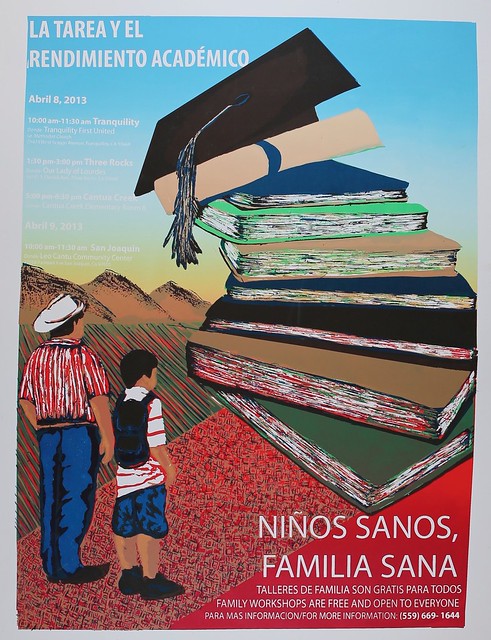
This post is part of the Science Tuesday feature series on the USDA blog. Check back each week as we showcase stories and news from USDA’s rich science and research portfolio.
What started as a project to test the effectiveness of childhood obesity prevention methods has turned into a community-wide effort and a new culture of health for families in Firebaugh, California.
In 2011, researchers at University of California (UC) – Davis and their project collaborators used a five-year, $4.8 million Agriculture and Food Research Initiative (AFRI) grant from USDA’s National Institute of Food and Agriculture (NIFA) to compare the obesity prevention work in Firebaugh to a nearby control community. Both communities are located in California’s Central Valley and home to many farmworker families of Mexican descent. During three years of the five-year study, Firebaugh families received monthly $25 vouchers to purchase fruit and vegetables at a local store. They also participated in family-centered nutrition education classes, developed by UC Cooperative Extension nutrition experts, graduate students, and a local nutrition educator.
In addition, Firebaugh-Las Deltas Unified School District collaborated to develop a school-based enhanced physical activity program and classroom nutrition education. The lead organizations—UC Davis and UC Cooperative Extension—leveraged the AFRI funds with resources from the Supplemental Nutrition Assistance Program Education (UC CalFresh in California) and the Expanded Food and Nutrition Education Program to provide the classroom nutrition education in pre-K through third grade.
With the city council, school district, and parents committed to the cause from the outset, the project –called Niños Sanos, Familia Sana (healthy kids, healthy family) – is contributing to the long-term, collective well-being of the entire community. According to the Centers for Disease Control and Prevention, childhood obesity has more than doubled in children and quadrupled in adolescents in the past 30 years.
“The lasting impact that Niños Sanos, Familia Sana will have in Firebaugh is precisely the goal of the childhood obesity prevention program – working at the family, school, and community levels to make healthy kids and healthy families a part of everyday life,” said Deirdra Chester, NIFA’s national program leader for applied nutrition research. See more about NIFA’s positive impact on children’s health.
Study findings showed slower weight gain among obese boys and a reduction in children’s consumption of high-fat/high-sugar foods. The project has also sparked programs and policy reflecting local commitment to improved health and nutrition beyond the grant term. For example, the Firebaugh Roadrunners, a local running group, and the Firebaugh City Council re-introduced a river walk/run—last held 20 years ago—to accompany their annual July Harvest Festival/Cantaloupe Roundup. Local businesses and growers donated bottled water and melons as healthy refreshments for all participants. Firebaugh City Council also encouraged vendors to sell healthy foods and beverages at the festival.
City plans are underway to extend the walking path that winds along the San Joaquin River and add a nature area to encourage families to enjoy these community treasures. The Firebaugh City Council to holding a second event, the “Mud Run,” this fall.
The Niños Sanos, Familia Sana program newsletter provides more information, in both English and Spanish.
NIFA invests in and advances agricultural research, education, and extension and seeks to make transformative discoveries that solve societal challenges.
